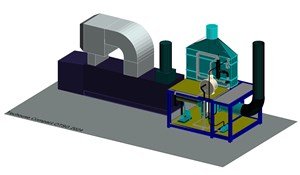The Oil & Gas Decarbonization Charter (OGDC) has published its Baseline Report, setting a foundation to help prioritize and track progress on emissions reductions made by the 54 oil and gas companies — representing almost 45% of the global oil production, that have signed up to the Charter’s ambitions.
These ambitions include to work toward net-zero operations by 2050, near-zero upstream methane emissions and zero routine flaring by 2030 in addition to measuring and publicly reporting progress towards meeting OGDC’s goals.
The publication of the Baseline Report is a key milestone for OGDC that sets out the work achieved in the first year since the initiative was launched at COP28.
In the past 12 months, OGDC has established a governance framework and launched a survey to determine signatories’ emissions reduction ambitions and implementation plans to set a baseline to track future progress. OGDC has also implemented a Collaborate & Share program to disseminate solutions, promote peer-to-peer collaboration and encourage the adoption of best practices to reduce emissions. In a sign of a positive momentum, the initiative has also attracted three new members, with Oil India Limited, PetroChina and Vår Energi joining.
“We are proud of the 54 companies that have already signed up to the Charter and are encouraged by the extent of their engagement in this first major piece of work that helps to establish a base on which to build future success,” OGDC’s three CEO Champions and founding members — Abu Dhabi National Oil Company (ADNOC) CEO Sultan Al Jaber, Aramco CEO Amin Nasser and TotalEnergies Chairman and CEO Patrick Pouyanné, said in a joint statement.
“Each company is at a different phase of the decarbonization journey. For some, the Charter reflects existing commitments and aligns with pledges already made via other initiatives. For others, it marks their first steps toward climate action.
“The diverse nature of our signatories is an opportunity as well as a challenge. Each company brings different experiences, capabilities, stakeholders and national circumstances. Signatories will have the opportunity to learn from the best practices and insights of peers from a wide range of backgrounds and from across the globe,” the CEOs said.
OGDC’s Charter Baselining Survey found that the majority of signatories are already consistent with the Charter’s ambitions for net zero operations by 2050, and goals to reduce methane emissions to near zero and eliminate flaring by 2030. Gaps identified in the survey will help prioritize support and knowledge transfer from companies with relevant experience.
The survey also found that a majority of the signatories already report on their greenhouse gas emissions, though there is a need for common standards and methodologies to establish a robust reporting framework for the group.
According to the survey, most of the signatories are already investing in the energy systems of the future, including renewable energy, energy storage, low-carbon fuels, hydrogen, methane abatement, carbon capture utilization and storage (CCUS) and carbon removals technologies, and plan to increase investments.
Bjorn Otto Sverdrup, the head of the OGDC Secretariat said: “A survey of oil and gas industry climate performance has never been attempted on this scale. Participants ranged from companies that pioneered decarbonization decades ago to those still in the early phases – all with different capabilities and reporting methods. The lessons learned will be used to improve reporting visibility and data quality and to create more targeted programs.”
This baselining survey sets the foundation for the collective work ahead: over the next year, OGDC will focus on providing the resources and guidance the signatories need to reduce their GHG emissions, methane emissions and flaring. OGDC will also help signatories to shape their net-zero roadmaps and develop emissions reporting to ensure progress can be tracked and to demonstrate how collective action can deliver positive climate impact on a global scale.
This article was originally posted at www.worldoil.com



Be the first to comment